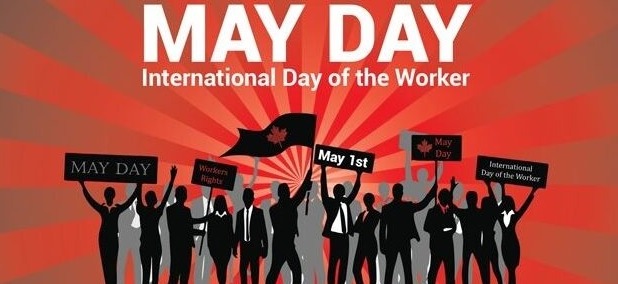May 1, also known as the International Workers’ Day or La our Day is fixed to annually commemorate the struggles of organised labour in the quest for enhanced workers’ welfare.
Historically, May Day celebration dates back to 1886 when workers in the U.S., decided to go on strike against allowing them to work for more than eight hours a day. Thus, May Day is a symbol of workers’ resilience in demanding for better living conditions, among other demands. It is established that the first Labour Day, organised by Labour Kisan Party of Hindustan, took place in India on May 1, 1923, and was thereafter celebrated around the world to advocate the rights of working people.
Ironically, workers in the U.S. and Canada are not joining their counterparts across parts of the globe for the celebrations where Nigerian workers align to celebrate the doggedness and resilience of the worker. The event is often characterised by parades by all organised workers, professionals, traders and other civil society organisations, among others. These countries had opted to celebrate differently to move away from the ‘socialist’ connotations attached to the May date.
In Nigeria May Day was first held in Kano in 1980 when the then administration of the People’s Redemption Party, PRP, under the leadership of late Governor Abubakar Rimi, declared the day as a public holiday. Soon, the federal government, then led by President Shehu Shagari, caught the bug and subsequently in 1981 declared a national holiday to applaud workers in their quest for national development. Since then, it has become a national event across the federation.
The quest for the relevance of the worker’s right began in Nigeria with a long and chequered history of trade unionism in Nigeria and the founding fathers who at different times suffered incarnations while agitating against the plight of workers.
We venerate those forerunners for their doggedness and foresight in promoting the welfare of the average Nigerian worker through the ages even as their fight transcends labour related matters to grave socio-economic issues bedeviling succeeding administrations at both the centre and regional levels. AljazirahNigeria extol their virtues which has far outlived them in leaps and bounds. However, it is reinforcing to acknowledge their pioneering efforts without which we would not be where we are today.
We salute workers across the globe and particularly Nigeria the celebrations which marked
The concerns of workers today hinges on the parlous state of our economy which is biting hard and taking a toll on the purchasing power of the average worker and indeed Nigerians.
We support their calls for an improved welfare for workers and a systematic confrontation against the odds affecting the nation’s wellbeing.
It is still detestable that some states and local governments are yet to commence the implementation of the national minimum wage in long after it was passed into law.
Being an indispensable force for national development, today’s event has become a reference point in calling to remembrance the ingenuity and sacrifice by Nigerian workers for economic development and a day for justice and equity. No doubt, current travails occasioned by what is termed reforms by President Bola Ahmed Tinubu in rescuing the nation’s economy from the doldrums have affected not only the living conditions of workers, but also the average Nigerian. We do hope the living conditions would gradually improve with the quality of life enhanced eventually.
However, one major issue President Nigeria Labour Congress, NLC, Comrade Joe Ajaero confronted at this year’s event was the shrinking civic space in Nigeria which is being compressed, restricting citizens from freely expressing themselves using security measures.
We reiterate that the freedom of association and free speech and indeed the rule of law should not be violated or curtailed at the expense of political expediency by the powers that be.
It is noteworthy that President Tinubu and the Senate President have respectively commended Nigerian workers for their indelible marks at promoting socio-economic development of the country is instructive even as we urge that agitations by the labour centres for a better living condition for the average Nigerian being a cardinal focus of Labour should not be overlooked.





